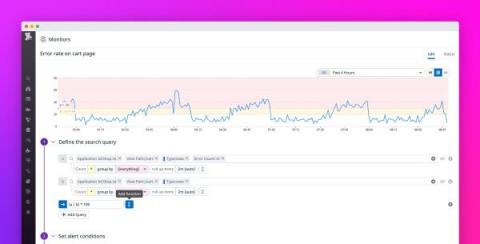Use formulas and functions in RUM monitors for high-value alerts
Real User Monitoring (RUM) gives you visibility into the behavior of your users and the performance of your applications. You may already be using RUM monitors to automatically notify your team when the number of RUM events—such as pageviews, clicks, or errors—rises above a threshold you define.











